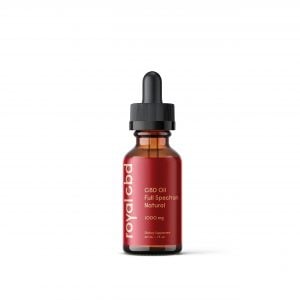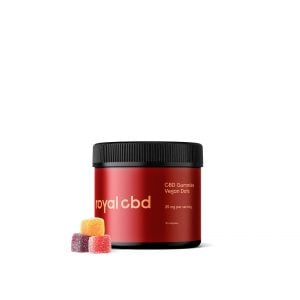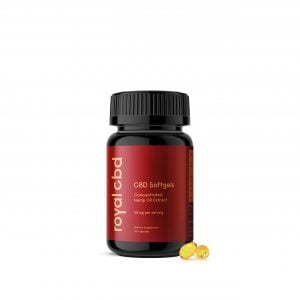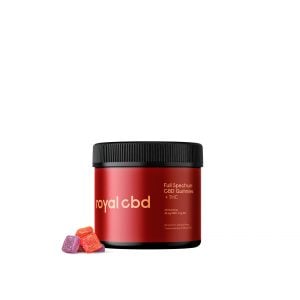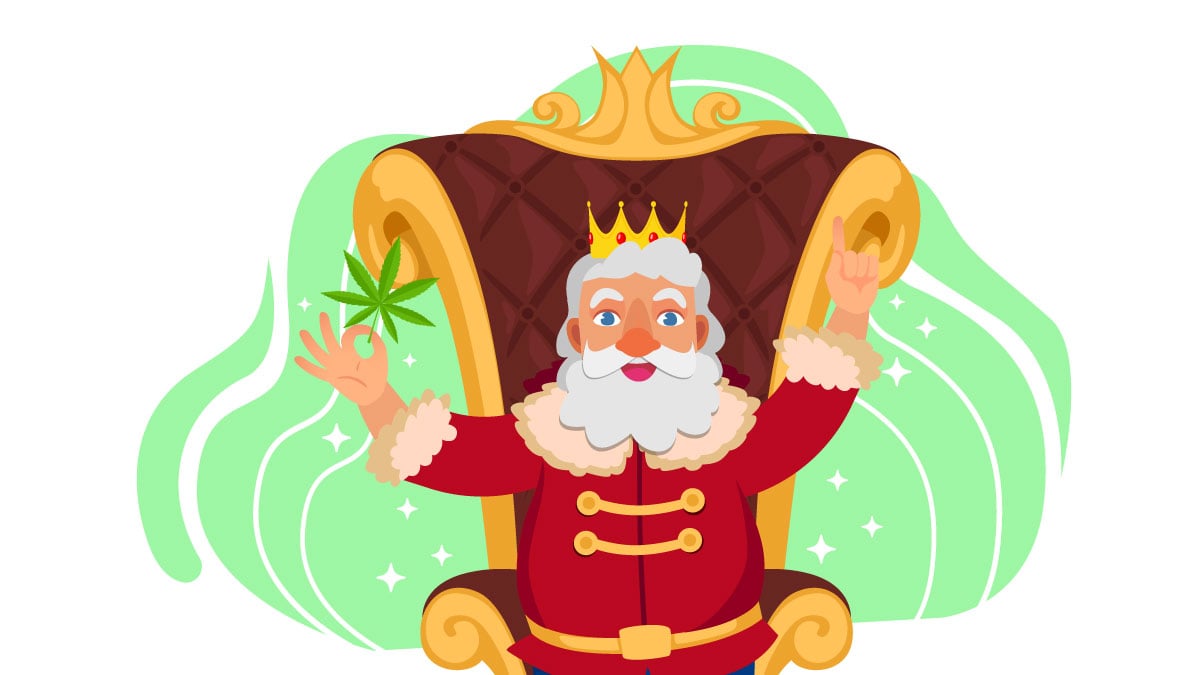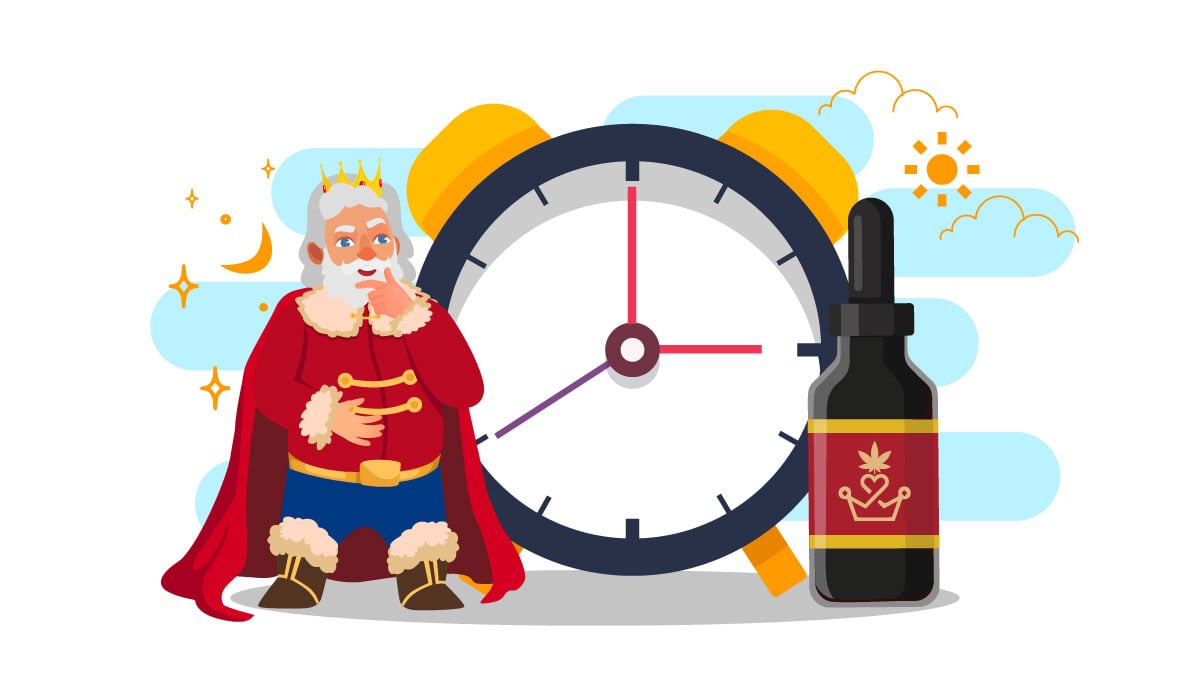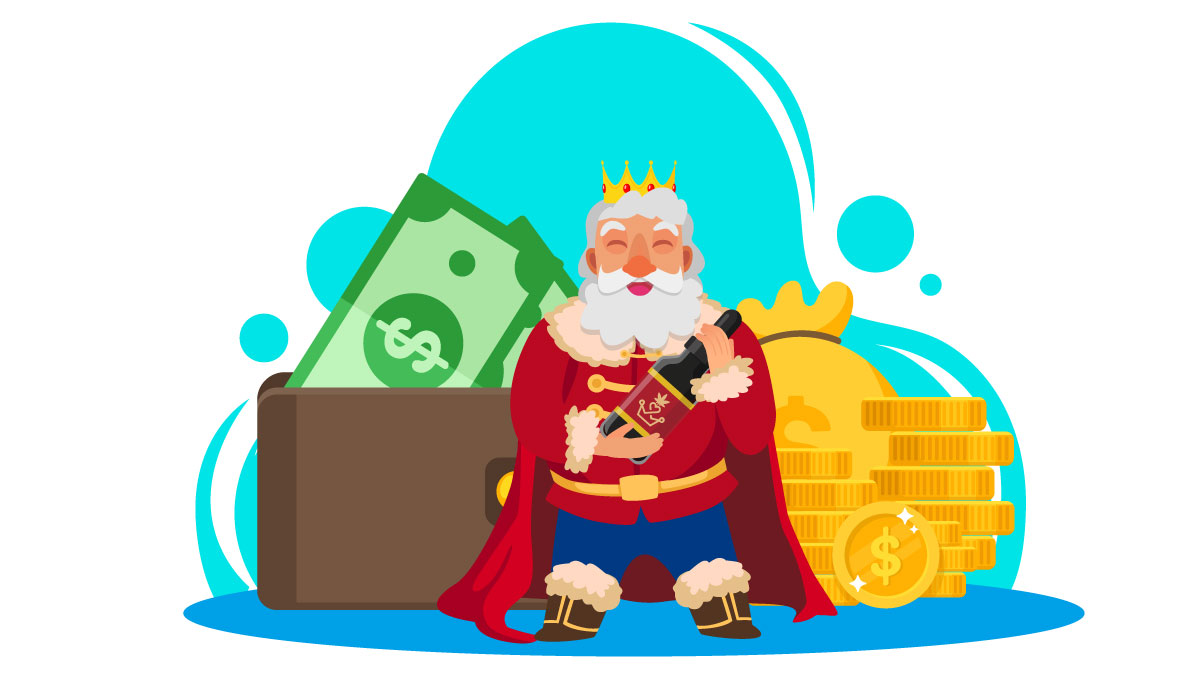Even if you’re not from the cannabis community, or you have little to no relationship with the plant itself, you’ve probably heard of CBD (cannabidiol) and its massive range of health benefits.
From anxiety to problems with focus, pain, inflammation, and poor sleep, people are using CBD as an alternative to conventional resources due to its well-established safety profile and promising results coming from recent studies.
But can CBD oil get you high?
After all, it’s derived from cannabis plants. However, the type of cannabis used for extraction plays an important role in determining whether or not a specific product can cause you to experience the psychoactive buzz.
In this article, we’ll clear up any confusion about the properties of CBD. We’ll also shed light on the differences between CBD and THC to help you better understand how both compounds work within the body.
Can CBD Oil Get You High?
Do you want a short answer?
No, CBD oil cannot get you high as long as it contains 0.3% THC or less.
CBD is a non-intoxicating cannabinoid, so it can make you feel more relaxed and in-the-zone, but these sensations don’t even get close to the signature marijuana high.
That being said, there’s also a long answer to that question.
Namely, there are some CBD oils that contain a considerable amount of THC (upwards of 5%), which can make you feel high. However, these oils are made from selectively bred marijuana strains that are grown for high CBD content. Still, they are not as low in THC as hemp-derived CBD oil.
Let’s take a look at important differences between CBD and THC.
CBD vs THC: Understanding the Yin and Yang of Cannabis
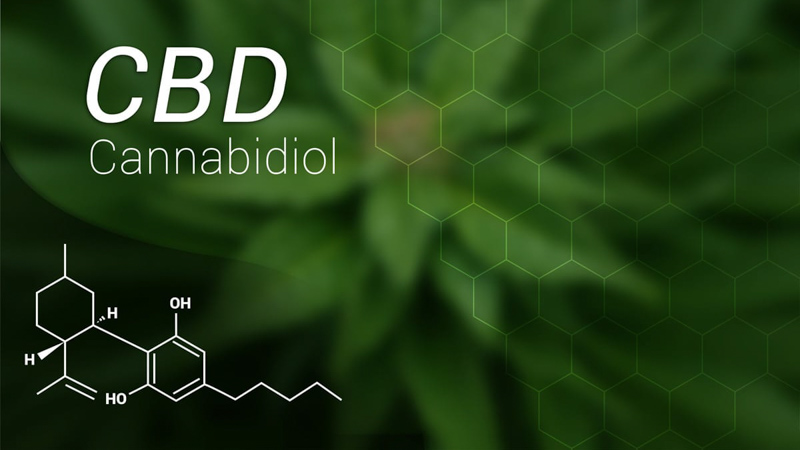
A common concern shared by people who are going to try CBD oil for the first time is whether or not the product will get them high.
Once you understand the difference between CBD and THC, the confusion will disappear.
Let’s start with THC.
What is THC?
THC is the only intoxicating cannabinoid found in the cannabis plant. It is responsible for the signature marijuana high. The moment THC enters your body, it binds to the CB1 receptors in the brain and spinal cord, producing a variety of effects on the body and brain.
This is why people usually feel deeply relaxed, slightly euphoric, hungry, and sometimes sleepy after smoking marijuana. THC controls mood, memory, pain perception, and other important functions such as appetite or body temperature.
THC has a biphasic nature, meaning that higher doses of this compound can elevate anxiety in contrast with low to moderate doses.
What is CBD?
Unlike THC, CBD has no intoxicating properties because it doesn’t have a direct affinity with any of the CB1 cannabinoid receptors.
Instead, CBD signals the endocannabinoid system (ECS) to release more of its native cannabinoids and help the body maintain homeostasis, which is a state of balance between all physiological processes.
CBD can reduce inflammation, ease anxiety, stress, alter pain perception, improve cartilage and joint health, help with attention problems, and promote neuroprotection — just to name a few benefits.
Perhaps the best part about CBD’s nature is its ability to actually mitigate the high induced by THC, which is an important part in the entourage effect in cannabis.
The entourage effect describes synergistic effects achieved by all cannabinoids and terpenes found in cannabis, which makes them more effective together than in isolation. On top of blocking the psychoactivity of THC, CBD enhances its pain-relieving and anti-inflammatory effects. On the other hand, THC is important, at least in some amount, to unlock the full therapeutic potential of CBD.
Now that you’re familiar with the difference between CBD and THC, let’s take a look at the effects of cannabidiol.
What Does CBD Feel Like?
Now that we’ve established CBD alone can’t get you high, you’re probably wondering what happens when CBD enters your body.
As mentioned, CBD doesn’t directly engage with any cannabinoid receptors, but it has more than 60 identified molecular targets.
Unlike THC, CBD isn’t a cannabinoid agonist, but rather a modulator of the endocannabinoid system.
Not only does CBD signal the ECS to release more endocannabinoids, but it also slows down their breakdown, allowing them to circulate longer in your body.
Most users describe the result of consuming CBD oil as a wave of relaxing sensation and relief running throughout the body and mind when taken sublingually or vaporized.
Many first-time consumers report first effects within 30 minutes after taking CBD oil, or within 5 minutes after inhalation. Oral products like capsules and edibles need more time to take hold, usually between 40–120 minutes.
Long story short, CBD oil can make you feel:
- Relaxed
- Focused
- Relieved from stress
- Calm
- Less in pain
But is CBD oil really non-psychoactive?
Or, do people confuse psychoactivity with intoxication?
Is CBD Actually Non-Psychoactive?
The fact CBD oil can’t get you high doesn’t mean it’s not psychoactive.
There’s a fine line between psychoactive and intoxicating effects.
At certain doses, THC can intoxicate the person’s mind, causing alterations in sensory perception, mood, motor skills, and cognition.
Now, the definition of psychoactive is “affecting the mind or behavior.” While CBD doesn’t affect your behavior, it certainly does affect the mind. For example, by reducing anxiety, it can improve your mood, so as a result, you’re happier and behave differently than if you were anxious and down in the dumps.
So, by definition, CBD actually is psychoactive, but many people deny that trait because the word “psychoactive” is associated with THC, and hemp companies are striving to make a clear distinction between the effects of hemp-derived and marijuana-derived CBD.
Speaking of which, we bet you’re curious about how CBD oil is made and what factors have an impact on its cannabinoid profile.
How Is CBD Oil Made and What Type of CBD Oil Can Get You High?
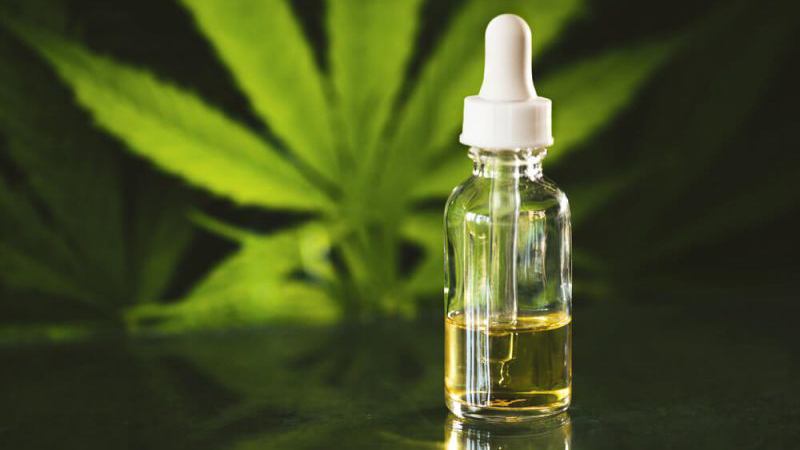
The majority of CBD oils are extracted from hemp plants, which are specifically bred to contain high levels of CBD and only trace amounts of THC. Hemp farmers take advantage of the fact that hemp is naturally high in CBD and grow the plants to boost its content.
What do we mean by trace amounts of THC?
While marijuana contains anywhere between 5–30% THC, hemp usually comes with 0.3%, which is not enough to get the user high.
This is also the federally accepted limit for the THC content in hemp products. Hemp-derived CBD oil is technically legal in all 50 U.S. states.
CBD oils are usually made with CO2 extraction, a method involving pressurized CO2 that acts as a solvent and pulls the beneficial compounds from the original hemp plant. Some companies or home manufacturers use ethanol to make CBD extracts, which is a cheaper method, but at the same time, carries a risk of inefficient purging or explosions.
Then the CBD extract is infused into a carrier oil such as MCT, hemp oil, or olive oil to enhance its bioavailability.
Once the oil gets bottled and tested in a third-party lab for potency and purity, it’s ready to use.
Other Cannabinoids that Could Get You High
Full-spectrum CBD oils contain other cannabinoids on top of cannabidiol.
Aside from non-intoxicating compounds, such as CBDA, CBC, or CBG, there are two minor molecules that can get you slightly high.
THCV
THCV is a cannabinoid similar to THC in its chemical structure. Since it occurs only in trace amounts, its presence won’t make you feel high. It can only regulate the effects of the major cannabinoids.
THCV alone can be intoxicating, but not in a manner that could trigger anxiety. In fact, THCV can dampen the intoxication from THC while elevating the mood and improving focus.
Other health benefits of THCV include the ability to reduce panic attacks, stimulate bone growth, and delay the onset of neurodegenerative diseases.
CBN
This cannabinoid is created when THC is exposed to heat and oxygen, which is why higher concentrations of CBN can be found in cannabis that was aged or poorly stored.
While not directly intoxicating, CBN produces powerful sedating effects, which get intensified in combination with THC. CBN also supports regeneration processes in the body.
Marijuana-Derived CBD Oil Can Get You High
As written earlier, CBD can be sourced from hemp and marijuana plants.
Marijuana-derived CBD oil is obtained through the same processes as CBD oil made from hemp.
However, it contains higher levels of THC — ranging from 5% to 30% — depending on the THC content of the source plant.
If you want to purchase marijuana-derived CBD oil, make sure that your state approves medical or recreational marijuana. Otherwise, you can get into trouble with the law.
Hemp-Derived CBD Oil Won’t Get You High
Since there are only negligible amounts of THC in hemp-derived products, CBD oils from this plant can’t get you high.
However, they still allow you to experience a wide range of health benefits associated with using cannabis. People use CBD oil to feel invigorated, pain-free, focused, relaxed, and more in-the-zone on top of many other goals. However, getting high isn’t one of them.
Hemp-derived CBD oil is federally legal; you can buy it like many OTC supplements. It’s widely available in organic food stores, vape shops, pharmacies, and specialty online stores.
Key Takeaways on CBD Oil and Getting High
Long story short, CBD oil can’t get you high as long as it has been sourced from hemp plants.
Hemp is grown to maximize the concentration of CBD in the flowers while lowering the amount of THC so it doesn’t have any intoxicating properties.
Don’t confuse the high feeling with relaxation or sedation; while CBD oil can produce such feelings, it also makes your mind clear and doesn’t directly influence your behavior.
With marijuana CBD oil, it’s a different story. It comes with a considerable amount of THC, so not only can it get you high, but it may also be illegal if your state doesn’t allow marijuana for medical or recreational use.
Once you understand the difference between CBD and THC and familiarize yourself with your local cannabis laws, you’ll be able to choose the right product. Make sure to always read the product’s label and ask for lab reports from third-party testing if you’re not sure about its THC content.
If the oil tests below 0.3% THC, you’re in the clear.
We hope this article has been helpful!
